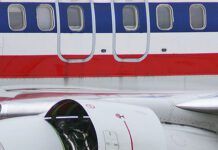On Monday, the FAA published a final rule affecting the T-34 fleet, declaring that the Alternative Methods of Compliance (AMOCs) it had approved for an earlier Airworthiness Directive on wing spars are no longer valid. The rule follows the November crash of a T-34 in Texas, in which two pilots were killed when a wing separated from the airplane while they were performing air-combat maneuvers. The impact of the new rule on the fleet is not quite clear, Tim Roehl, president of the T-34 Spar Corp., which provides modifications for the airplanes, told AVweb yesterday. “We expect that the AMOCs will be revised and resubmitted to the FAA,” he said.
If that process works fairly smoothly, as Roehl anticipates, new AMOCs may be approved before T-34 owners are due for their next 80-hour inspection. However, the T-34 Association‘s Web site said, “It appears that any T-34 that has accumulated 80 hours or more time in service since August 16, 2001, will be grounded on March 15, 2004, regardless of whether or not any AMOC has been performed. The only exception to this is the aircraft that have complied with Raytheon Service Bulletin No. 57-3329 are not effected [sic] by this amendment.” The T-34 Association is hoping to work out a temporary AMOC for those that have already completed an AMOC by inspecting wing station 66 per Raytheon Service Bulletin 57-3329. Victor Juarez, the Designated Engineering Representative that designed the AMOC for General Aviation Modifications Inc. (GAMI) and the rear spar inspection for Nogle and Black Aviation, is currently working with GAMI to develop an inspection procedure and a fix that will extend the 80-hour reinspection interval of the Raytheon Service Bulletin to several thousand hours between inspections. Roehl said the revised AMOC would make available a fix that is OK’d for about 7,500 hours. The new FAA rule takes effect March 15. About 350 T-34s are flying in the U.S., Roehl estimated. The FAA first issued an AD about the T-34 wings in 1999, after a wing on a T-34A separated in flight. The FAA estimated that each repetitive inspection would cost about $1,860.


































